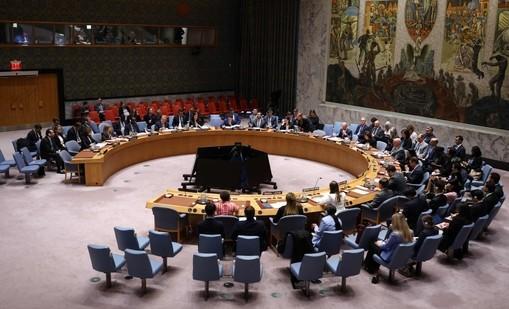
Was LeT involved? UNSC asks Pak on J&K attack, refuses to accept ‘false flag’ claim
In a recent closed-door meeting at the United Nations Security Council (UNSC), members refused to accept Pakistan’s “false flag” narrative on the Pahalgam attack in Jammu and Kashmir. The meeting was called by Pakistan to address the concerns and allegations raised by other member states. However, the UNSC members were not convinced by Pakistan’s claims and instead asked questions about the involvement of the terror outfit Lashkar-e-Taiba (LeT) in the attack.
The Pahalgam attack, which took place on October 11, 2022, has been widely condemned by the international community. In the attack, a group of terrorists targeted a tourist bus, killing and injuring several people. While Pakistan has denied any involvement in the attack, the Indian government has blamed the LeT, a Pakistan-based terror outfit, for the incident.
During the meeting, UNSC members reportedly questioned Pakistan about the presence of LeT operatives in the area and whether they could have been involved in the attack. This is not the first time that the LeT has been linked to a terrorist attack in Jammu and Kashmir. The outfit has been accused of carrying out several attacks in the region in the past, including the 2008 Mumbai attacks that killed over 160 people.
Pakistan has consistently denied any involvement in terrorist activities in Jammu and Kashmir and has instead accused India of human rights violations in the region. However, the UNSC members seem to be unconvinced by Pakistan’s claims and are seeking more information about the attack.
One of the key concerns raised by UNSC members was the targeting of tourists on the basis of religion. The Pahalgam attack was seen as a clear example of terrorism and a violation of human rights. The UNSC members emphasized the need for Pakistan to take concrete steps to prevent such attacks from happening in the future.
The meeting is seen as a significant development in the ongoing tensions between India and Pakistan over the issue of terrorism. The two countries have had a strained relationship for several years, with both sides accusing each other of sponsoring terrorism.
In recent years, there have been several incidents of terrorism in Jammu and Kashmir, including the Pulwama attack in February 2019 that killed over 40 Indian security personnel. The attack was carried out by a suicide bomber affiliated with the Jaish-e-Mohammed (JeM), another Pakistan-based terror outfit.
The UNSC meeting is also seen as a response to the increasing number of terrorist attacks in Jammu and Kashmir. The region has been plagued by terrorism for several decades, with both India and Pakistan accusing each other of sponsoring terrorist activities.
In conclusion, the UNSC meeting has sent a clear message to Pakistan that the international community is not convinced by its “false flag” narrative on the Pahalgam attack. The UNSC members have asked tough questions about the involvement of LeT operatives in the attack and have emphasized the need for Pakistan to take concrete steps to prevent such attacks from happening in the future.
The meeting is a significant development in the ongoing tensions between India and Pakistan over the issue of terrorism. As the two countries continue to accuse each other of sponsoring terrorism, it is essential that the international community remains vigilant and takes concrete steps to prevent such attacks from happening in the future.



